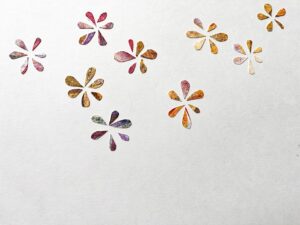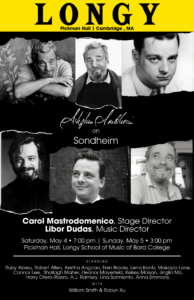Composers
Sayat-Nova (1712-1795), meaning “King of Songs” or “Lord of Verse” in Persian, is the name given to Harutyun Sahakyan. He grew up in a village near Tbilisi, Georgia, and was skilled in writing poetry, singing, and playing the kamancheh. Sayat Nova performed in the court of Heracle II of Georgia, where he also worked as a diplomat, and apparently helped forge an alliance between Georgia, Armenia and Shirvan against the Persian Empire. He lost his place at court when he fell in love with the king’s daughter, and spent the rest of his life as an itinerant bard. In 1795 he was killed in Haghpat by the army of Agha Mohammed Khan.
Sayat Nova is considered the greatest ashough (folk singer-songwriter) that ever lived in the Caucasus (the area between the Black and the Caspian sea, shared among current Armenia, Russia, Georgia and Azerbaijan). About 220 songs can be attributed to Sayat-Nova, although he may have written thousands altogether. These songs are still sung today. His songs are written mainly in Armenian, but also in Persian, Georgian and Azeri Turkish. One of the marks of this tradition is the reciting of the composer’s name at the end of a song as a way of marking creative ownership.
Komitas Vardapet (Soghomon Gevorg Soghomonyan) – composer, musicologist, singer, choirmaster, pedagogue, poet, and the founder of the Armenian National School of Music, was born on September 26, 1869 in Kuthaya, then part of the Ottoman Empire. In 1881, the orphaned Soghomon was sent to the Gevorgian Seminary at the Holy See of Etchmiadzin where special attention was paid to his musical education. While studying at the seminary, Soghomon began collecting and studying Armenian folk songs, and conducting research on decoding the neume system of Armenian liturgical music.
In 1893, after completing his studies, Soghomon served as a music teacher at the seminary. In 1894, he was ordained and given the name Komitas in honor of the Catholicos Komitas I Aghtsetsi (VII century). In 1895, he was ordained vardapet, similar to a Doctor of Theology. He then left for Berlin, where from 1896 to 1899 he studied at the private conservatory of Professor Richard Schmidt at Friedrich Wilhelm University (now Humboldt University). After completing his studies, Komitas joined the newly founded International Music Society and delivered reports on Armenian folk and spiritual music. Returning to Etchmiadzin, Komitas resumed his musicological research. In 1910, Komitas moved to Constantinople. There he founded a 300-member co-ed choir called “Gusan”. In 1915, the disaster of experiencing the Armenian Genocide committed by the Ottoman government deeply shocked Komitas which led to a nervous breakdown. The rest of his life was spent in a psychiatric hospital in the suburb of Villejuif in Paris, where he died on October 20, 1935.
Tatul Altunyan (1901-1973) was born in Adana in the Ottoman Empire and fled the Armenian Genocide to the newly independent, soon to be Sovietized, Republic of Armenia. He graduated from the Gomidas State Conservatory in Yerevan in 1934 and founded the Armenian National Song and Dance Ensemble in 1938, which he led until 1970.
Tatyos Ekserciyan (1858 – 1913) was a famous composer of classical Ottoman music, a multi-ethnic genre whose composers were Armenians, Greeks, and Turks. Born in Istanbul, Tatyos learned to play the kanun and violin. Many of his compositions were not notated and hence are lost. Sama’i is a common Ottoman classical form in 10/8 that roughly corresponds to our rondo form with a recurring ritornello (or teslim) and contrasting khanas. The last khana is usually in a different meter such as 3/4 or 6/8. Hijaz Kar Kurd is the name of the maqam the piece is in.
Ashot Satyan (1906-1958) was a composer and conductor in Soviet Armenia. He was head of the Armenian SSR Composers Union from 1948-1952.
St. Grigor Narekatsi (c. 950 – 1003/1011) was an Armenian poet, monk, and theologian whose written works are steeped in mysticism. He is considered a saint by the Armenian Apostolic and Catholic churches and was declared a Doctor of the Church by Pope Francis in 2015. St. Grigor spent most of his life in the monastery of Narekavank in the medieval Armenian kingdom of Vaspurakan centered around the shores of Lake Van. His most famous work is a poem of over 10,000 lines called The Book of Lamentations.
Performers
William Bueno is a Colombian guitar player, composer, educator, and therapeutic music student. He is originally from Santander, Colombia and began his music career as a student at AMMUS, a music academy in Bucaramanga. William received his Bachelor’s degree from Berklee College of Music, specializing in Jazz guitar and Classical guitar with a major in Performance.
He has been part of Berklee’s Vive Latin American Festival, the International Folk Music Festival, Idolos Latinos, the Berklee Bebop Guitar Ensemble, film scoring projects, and The Movement at Berklee – a student-led program that uses music as a catalyst for community and social change. In 2018 he established the band “Alma Y Madera” (Soul and Wood) which performs music from South America throughout Boston.
William is now continuing his education at Longy School of Music of Bard College. He experienced the healing power of music firsthand in 2018, when he was recovering from treatment for cancer. This inspired him to begin training to become a Certified Music Practitioner® through Longy’s partnership with the Music for Healing and Transition Program™. William is The Cambridge Homes Certified Music Practitioner Scholar.
Christiana Goslin Bueno wishes to forge an approachable, yet thought-provoking rendezvous with you through musical works both ancient and newborn. As a vocalist, she performs a variety of styles from Folk to Opera. She is especially excited about this collaboration, as it celebrates her Armenian heritage. In the Boston area, you may have seen Christiana as Barbarina (Susanna Cover) in NEMPAC’s production of Le Nozze di Figaro, the Boston Opera Collaborative’s critically acclaimed annual festival of ten-minute operas: Opera Bites, or in excerpts from The Rake’s Progress and Der Freischütz under the baton of Ryan Turner. She was a 2023 semifinalist in the Lyndon Woodside Oratorio Competition (NYC). In 2022, she won the MassOpera Competition Audience Favorite and Encouragement Awards and played the title role in Libby Larsen’s The Silver Fox (Longy School of Music). Other credits: The Turn of the Screw (Miles), Alcina (Oberto), La Rondine (Chorus), etc. Christiana earned her Bachelor of Music in Vocal Performance from the Eastman School of Music and completed her Master of Music in Vocal Performance at the Longy School of Music.
Martin Haroutunian, a musician and student of Armenian folk music, performs and teaches traditional Armenian wind, string and percussion instruments, including dap, dhol (kopal), duduk, parkapzuk, pku, saz, shvi, sring (blul), and zurna. Martin has studied at the Komitas State Conservatory of Yerevan, Folk Instruments Department under Khachatur Avetisian, in the Wind Instruments Division under Jivan Gasparian, and the University of Massachusetts, Boston.
Martin has performed in Armenia, Australia, Canada, Cyprus, France, Holland, Italy, Lebanon, Switzerland, Syria, and Turkey. He was a guest artist with the Navasart Armenian Folk Ensemble of Paris, France during their United States tour. Martin has also toured with the Erebouni and Garni Armenian Folk Ensembles as principal soloist performing at various prestigious international festivals. Martin arranged and performed the music for New Repertory Theater’s 1998 production of Richard Kalinoski’s “Beast on The Moon” as well as acted as a consultant and recorded for the play’s 2005 Off-Broadway production. In 1989 Martin founded and has since directed the Arev Armenian Folk Ensemble performing extensively in the United States and Canada, including multiple sold-out performances with the 2002 Christmas Revels at Harvard University’s Sanders Theater.
Tatevik Kocharyan is a passionate individual deeply immersed in the opera and theatre realms. A versatile performer, she has embodied iconic roles such as Lucia in “Lucia di Lammermoor,” the alluring María in Piazzola’s “María de Buenos Aires,” and The Witch in “Hansel and Gretel”.
Tatevik has been an active member of the Armenian community and church, dedicating her time and energy to various cultural and religious activities. As a soloist in the choir for over three years, she has experienced the joy of sharing rich Armenian musical heritage with others. This connection drives Tatevik’s ongoing commitment to preserving and celebrating Armenian heritage.
Garo Saraydarian teaches in the Masters of Music in Music Education and music theory programs at the Longy School of Music. In addition to Longy, Garo teaches musicianship and music theory at MIT, is an Assistant Professor in the Harmony department at Berklee College of Music and an instructor in the Transformative Education department at Boston College. He is currently completing his PhD in Educational Studies from Lesley University.
Garo’s musical experiences began with dual study of the violin and trombone. He has performed with the Fenway Jazz Art Orchestra, Dig Trio, Phil Wilson’s Rainbow Band, Mehmet Ali Sanlikol and WhatsNext?, and the Ayn Inserto Jazz Orchestra including performances at the Caramoor Jazz Festival, Jazz at Lincoln Center, Birdland, and the Jazz Education Network Conferences in New Orleans. Garo is a fourth-generation oudist and this is his first public recital on oud.





